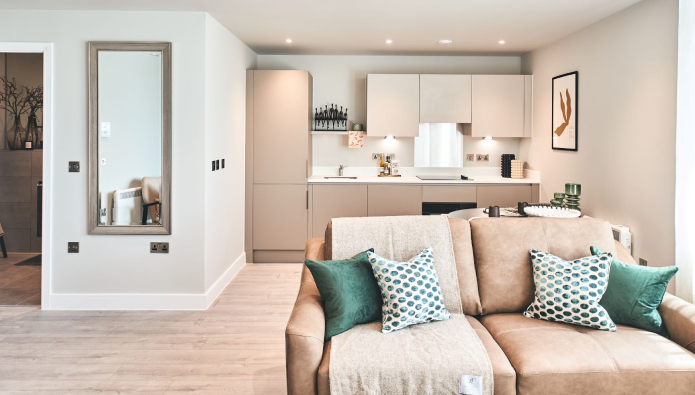Andy Foote, a seasoned property investor and sales director at property developer SevenCapital, says: “Like many things in business, if you want to succeed you need focus: find something you’re good at and do it well. Property investment can be exactly the same.”
“It’s true you can do well from holding a variety of different types of investment as long as you know what you’re doing with them, but I often find if you narrow down to the one or two investment models that you like, you understand and you know how to manage well, then this can pay dividends in the long run, without causing you extra worry or hassle.”
He adds: “If you’re relatively new to investing, knowing how to find your niche might be your first port of call, however it’s actually pretty simple and it all starts with where your priorities lie: what level of time and effort are you willing to put into the property during and after investing? What type of returns are you looking for – cashflow, capital growth or even both? Finally, ask yourself, what level of return are you looking for?”

Foote says he doesn’t pose the question of 'how long do you want to keep your investment' because with property, the longer you hold, generally the more money you’re going to make over time and if you do come to eventually sell.
Once the above questions are answered, investors can easily identify what type of investor they want to be and can then knuckle down into doing the research on the best properties and areas to suit circumstances and budget.
He outlines four main types of investors below:
The hassle-free, hands-off investor
“If you want to invest and have a tenant move in straight away or you’re specifically looking for a steady passive flow of income from rental returns, then a new build or ready-made property, managed by an agent, is probably for you. Many investors fall into this category – it means little extra expenditure required on the property once you’ve bought it, bar general maintenance, and you can entrust an agent to keep a check on the condition of the property and the rental payments coming in while ensuring there is a good tenant in occupation.”
Foote says extra expenditure will be required in the form of paying for the agent’s services, but ‘what you pay in cash for a service, you gain in time to concentrate on your other ventures’. This is generally considered a good way of investing for the more risk averse investor, he adds.
The Buy, Refurbish, Refinance (BRR) investor
“Not so much actual cranes here, but a similar sentiment in terms of putting in some work. For investors who want to pay less and are willing to get their hands a little dirty in order to increase the value of their property quicker, then the BRR route is an option: buy an un-modernised property, refurbish it, refinance it – not necessarily to achieve a better rate, but to get cash, or equity, out of the property,” Foote advises.
The cashflow is king investor
If a higher cashflow is the main goal and you can cope with a higher level of effort, Foote says HMOs (houses in multiple occupation) might be your niche.
“The benefits of being able to rent to a higher number of people in a shared house often includes being able to achieve higher rents and yields collectively, however this can be a very transient market, so it’s not for the investor who likes to sit back and steadily collect a passive income.”
The capital investor
“You might be the type of investor whose main priority is earning capital, not necessarily through BRR, and for whom rental income is a plus – whether that’s through regular rental returns or as a holiday let. If you’re a cash investor, you may fall into this category, as well as perhaps BRR or hands-free, with the main objective being to safeguard and grow your wealth over time,” Foote says.
Identifying which type of investor you are from the above is the first step in finding your niche and it might be that this is enough, Foote explains.
“However, some investors find it easier to find success by really narrowing down their niche once they’ve found a formula that works.”
Foote recommends investing in a particular area or set of postcodes that are known to be in high demand and are likely to offer longevity for the rental market.
“You may target a particular type of tenant and get to know exactly what their weak spots are when it comes to attracting them – for example targeting young professionals, families or students only,” he says.

“Alternatively, you might prefer to invest in a particular type of property – new build apartments and older terraced properties, for example, attract very different types of tenants.”
He concludes: “By finding your niche, you’re making sure you really know your market inside out which can allow you to gain an upper hand against nearby competition. The important things to remember are: be clear of your priorities and do your research properly so you are confident you are investing in the right property, in the right location, at the right price point.”
“Unless you’re very good at flipping property, which in the current market is a much riskier strategy, having a long-term focus that includes being prepared to weather the storm if and when the market takes a temporary downturn is also key to ensuring your property delivers the returns you want over time.”











.png)










Join the conversation
Be the first to comment (please use the comment box below)
Please login to comment